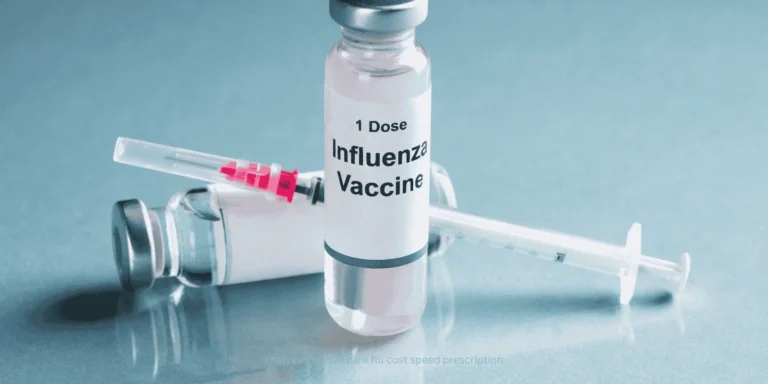“I thought it was just a cold coming on.”
I hear this from flu patients constantly. And I get it — early flu symptoms can be sneaky. But catching flu early matters because antiviral medications work best when started within 48 hours of symptom onset.
Here’s what to watch for, even when you’re not sure it’s the flu yet.
The Sudden Shift
The biggest clue? How fast you go from fine to not fine?
Colds creep up on you over a day or two. You feel a little scratchy, then more congested, then worse.
Flu hits like someone flipped a switch. I had a patient tell me she felt perfectly normal eating lunch, then by dinner she was shivering under three blankets with a pounding headache.
That rapid onset — going from zero to miserable in hours — is flu’s signature move.
Body Aches That Actually Matter
Everyone talks about flu body aches, but early flu aches are specific.
They’re not just “I feel sore.” They’re deep muscle aches that make you notice muscles you forgot you had. Your back hurts, your legs hurt, and sometimes even your hair follicles seem to ache.
One patient described feeling ” like I got hit by a truck, but the truck was made of concrete.”
Cold aches are mild and mostly in your head and neck. Flu aches are full-body and intense.
The Headache Pattern
Flu headaches aren’t your typical tension headache. They’re usually frontal — right behind your forehead and eyes — and they don’t respond well to regular pain relievers.
It’s the kind of headache that makes bright lights annoying and makes you want to crawl into a dark room.
Fever’s Early Warning
Not everyone gets fever with flu, but when you do, it often spikes fast and high. We’re talking 101°F to 103°F or higher, sometimes within hours of feeling “off.”
The fever might come with chills that make you bundle up even when the room feels warm to everyone else.
Fatigue That’s Different
Early flu fatigue isn’t just tired. It’s profound exhaustion that makes simple tasks feel overwhelming.
Walking to the kitchen for water becomes a major undertaking. You might find yourself sitting down halfway through getting dressed because you need a break.
This extreme fatigue often hits before other symptoms get severe.
Respiratory Symptoms (Or Lack Thereof)
Here’s what throws people off: early flu often doesn’t have much cough or congestion. Maybe a dry throat or mild cough, but nothing dramatic.
People expect flu to be a respiratory illness, but the respiratory symptoms often come later. Early flu is more about fever, aches, and that knocked-down feeling.
The Gut Connection
Some flu strains cause nausea, vomiting, or diarrhea, especially in kids. But even in adults, early flu can make your stomach feel “off” before you realize you’re getting sick.
Why Early Recognition Matters
Antiviral medications like Tamiflu work best when started within the first 48 hours. Miss that window, and they’re less helpful.
Plus, knowing it’s flu helps you:
- Stay home and avoid spreading it
- Prepare for several days of feeling awful
- Watch for warning signs that need immediate medical attention
When to Seek Care Early
Don’t wait it out if you’re high-risk — over 65, pregnant, diabetic, or have heart/lung conditions. Flu hits these groups harder, and early treatment can prevent complications.
Also seek care if you develop:
- Difficulty breathing
- Chest pain
- Severe headache with neck stiffness
- Confusion or extreme dizziness
The Telehealth Advantage
Early flu evaluation works great through telehealth. We can assess your symptoms, determine if antivirals make sense, and provide guidance on symptom management — all while you stay home feeling miserable instead of dragging yourself to urgent care.
The key is not dismissing those early warning signs. When your body goes from normal to awful in a matter of hours, especially with those characteristic deep body aches and headache, think flu and act quickly.












